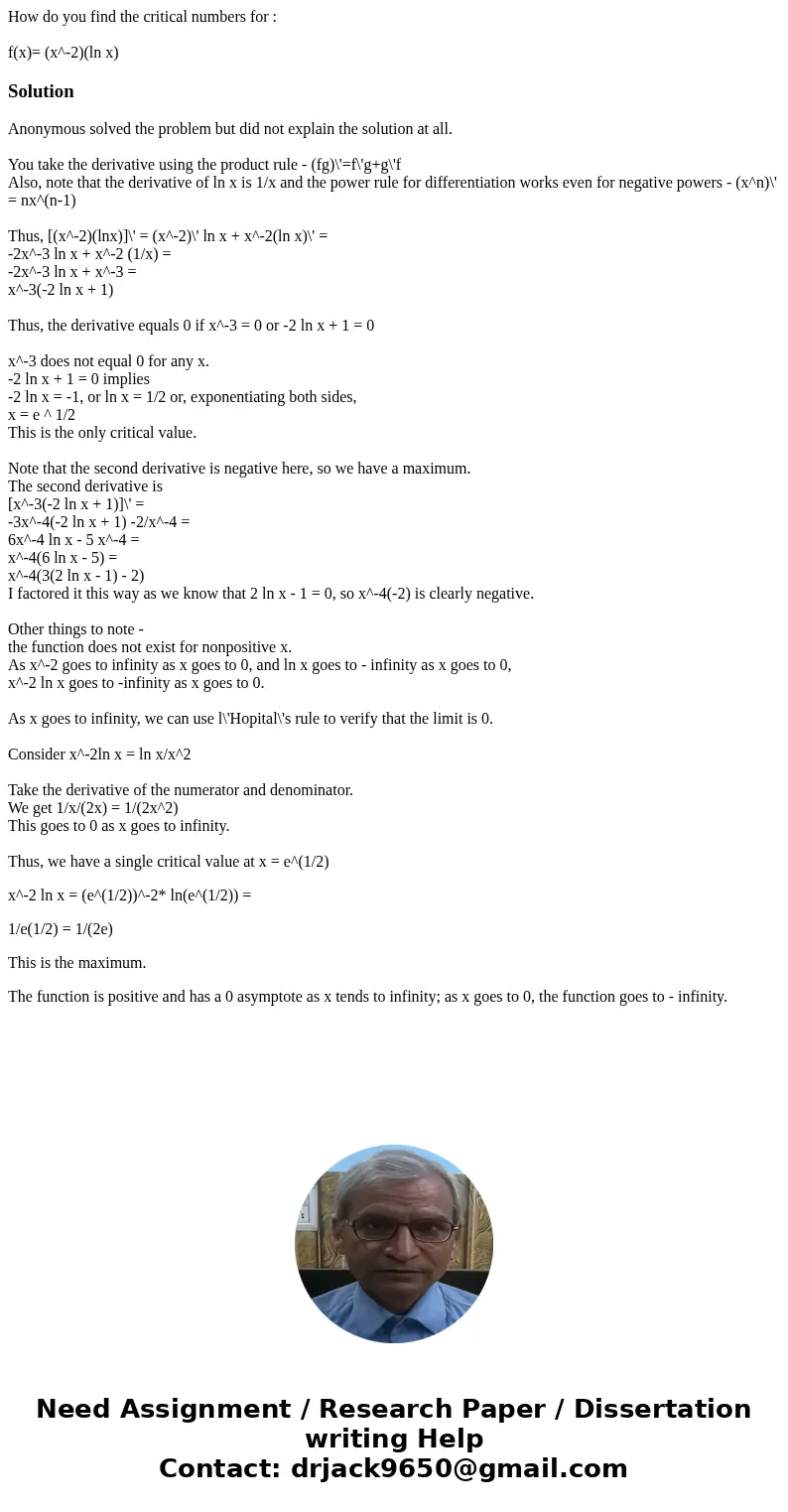How do you find the critical numbers for fx x2ln xSolutionA
f(x)= (x^-2)(ln x)
Solution
Anonymous solved the problem but did not explain the solution at all.
You take the derivative using the product rule - (fg)\'=f\'g+g\'f
Also, note that the derivative of ln x is 1/x and the power rule for differentiation works even for negative powers - (x^n)\' = nx^(n-1)
Thus, [(x^-2)(lnx)]\' = (x^-2)\' ln x + x^-2(ln x)\' =
-2x^-3 ln x + x^-2 (1/x) =
-2x^-3 ln x + x^-3 =
x^-3(-2 ln x + 1)
Thus, the derivative equals 0 if x^-3 = 0 or -2 ln x + 1 = 0
x^-3 does not equal 0 for any x.
-2 ln x + 1 = 0 implies
-2 ln x = -1, or ln x = 1/2 or, exponentiating both sides,
x = e ^ 1/2
This is the only critical value.
Note that the second derivative is negative here, so we have a maximum.
The second derivative is
[x^-3(-2 ln x + 1)]\' =
-3x^-4(-2 ln x + 1) -2/x^-4 =
6x^-4 ln x - 5 x^-4 =
x^-4(6 ln x - 5) =
x^-4(3(2 ln x - 1) - 2)
I factored it this way as we know that 2 ln x - 1 = 0, so x^-4(-2) is clearly negative.
Other things to note -
the function does not exist for nonpositive x.
As x^-2 goes to infinity as x goes to 0, and ln x goes to - infinity as x goes to 0,
x^-2 ln x goes to -infinity as x goes to 0.
As x goes to infinity, we can use l\'Hopital\'s rule to verify that the limit is 0.
Consider x^-2ln x = ln x/x^2
Take the derivative of the numerator and denominator.
We get 1/x/(2x) = 1/(2x^2)
This goes to 0 as x goes to infinity.
Thus, we have a single critical value at x = e^(1/2)
x^-2 ln x = (e^(1/2))^-2* ln(e^(1/2)) =
1/e(1/2) = 1/(2e)
This is the maximum.
The function is positive and has a 0 asymptote as x tends to infinity; as x goes to 0, the function goes to - infinity.

 Homework Sourse
Homework Sourse